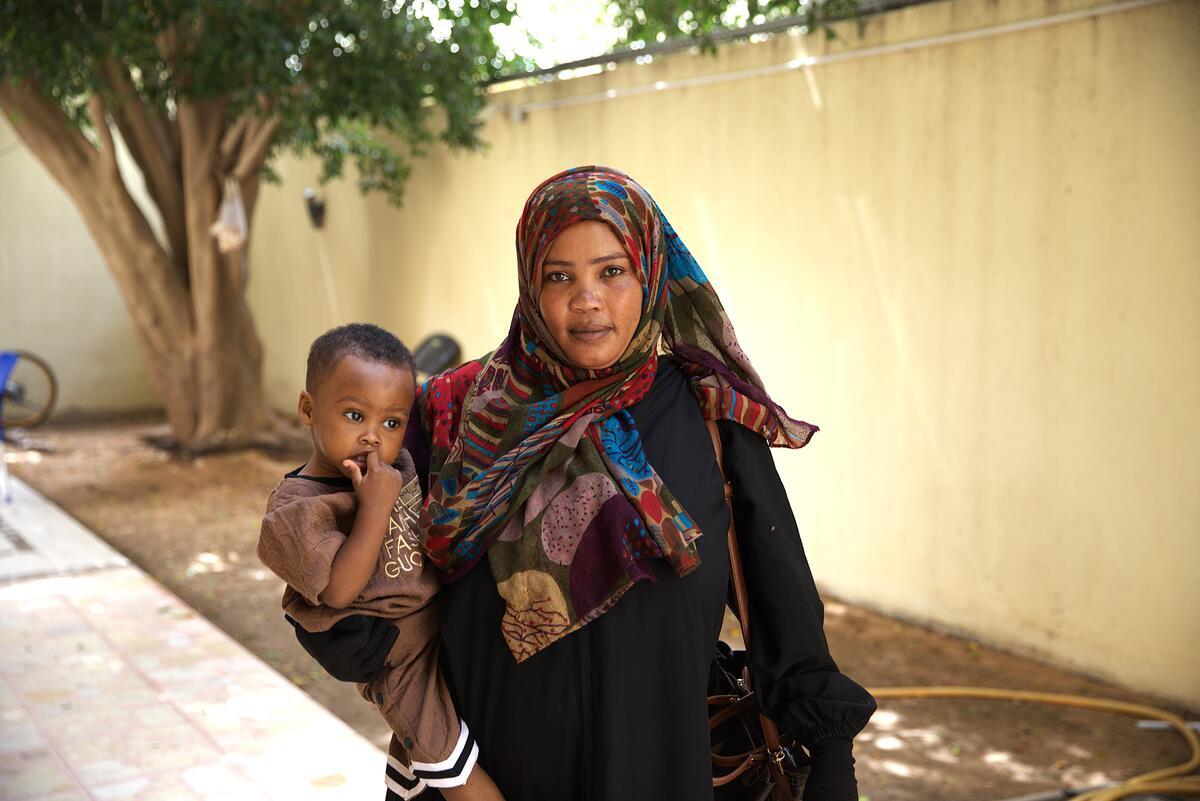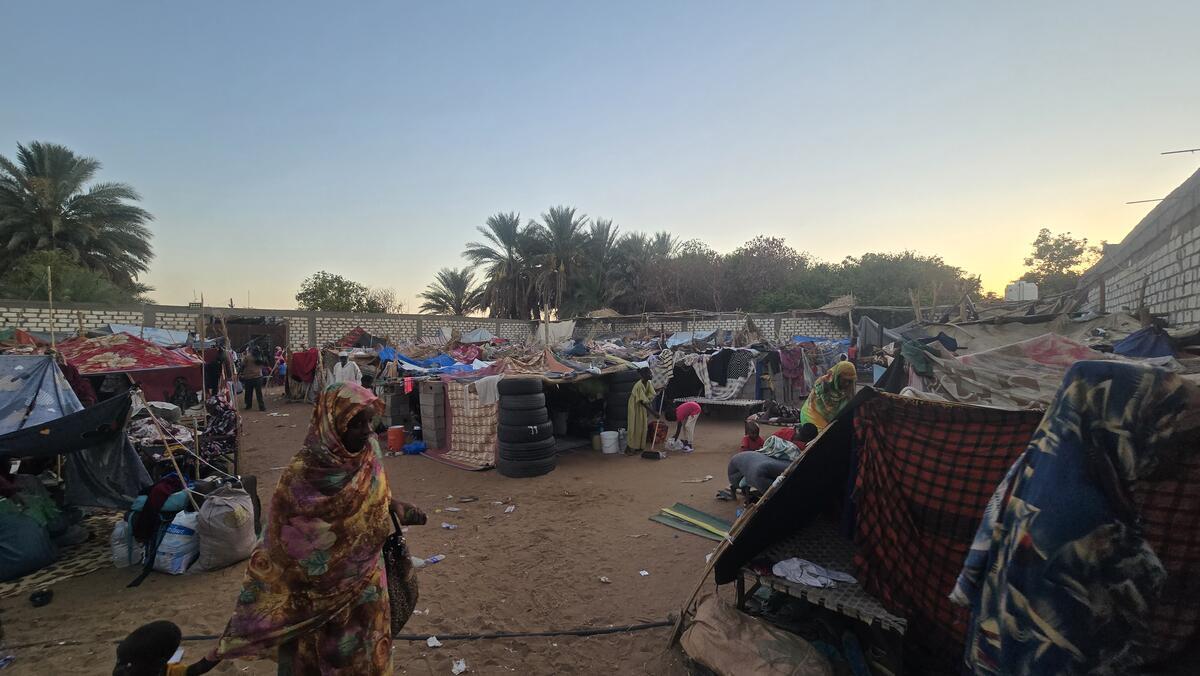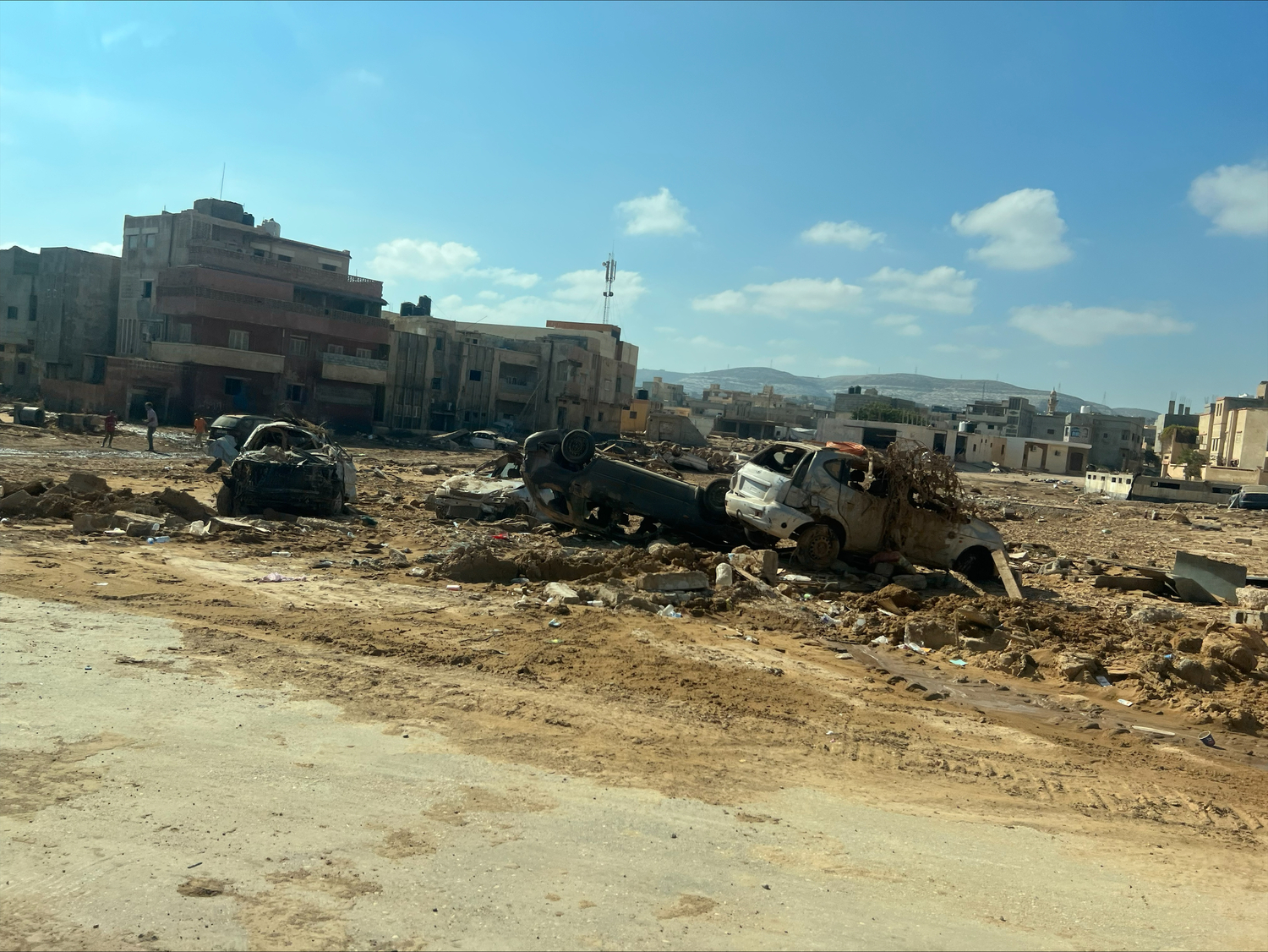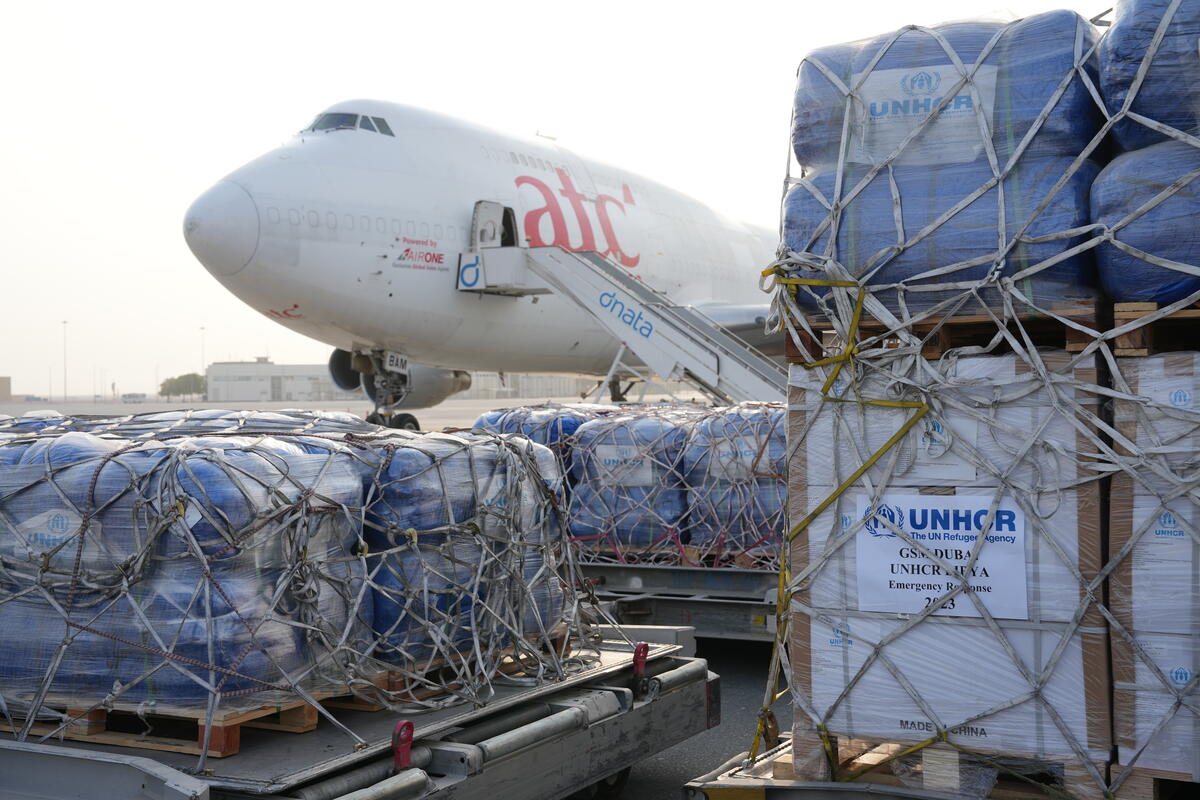More refugees flee western Libya, new aid reaches the east
More refugees flee western Libya, new aid reaches the east
We now estimate that some 30,000 Libyan civilians have fled their homes in Libya's Western Mountain region and crossed to southern Tunisia over the past three weeks.
Most of the refugees are ethnic Berbers who told our staff they fled the fighting and shelling of their towns and villages in Western Mountains. Many families left fearing the proximity of the clashes and indiscriminate bombardments.
According to the latest arrivals, the towns of Nalut and Wazin in the Western Mountains region are now virtually deserted. Only a few men could be seen there - no women and children.
Fewer than ten per cent of Libyan arrivals into Tunisia are staying in camps. The vast majority of Libyan refugees are hosted by the local Tunisian communities, demonstrating once again their great generosity. However, these Tunisian hosts are under a growing strain as their resources are running out quickly. We are working with a number of local partners in southern Tunisia in order to ease the pressure and provide more assistance and support to the host communities. We plan to further expand these activities in the coming days.
Our staff, as part of a UN inter-agency humanitarian team, traveled from the Tunisian border to Tripoli on Sunday. The goal of the team is to re-establish an international presence in the Libyan capital as well as to review humanitarian needs. The team is also discussing with the Libyan authorities in Tripoli humanitarian access in the west.
Meanwhile in the eastern Libya, a UNHCR-chartered DC-8 airplane arrived on Monday in Benghazi carrying relief assistance from our emergency stockpile in Dubai. This is the first UN humanitarian flight to land in Benghazi.
Yesterday's consignment includes 21 hospital tents, kitchen sets as well as plastic sheets for shelter. The tents will be donated to various charities, organisations and NGOs in Benghazi. Other aid items will be distributed through our local partners to vulnerable people in and around the city, including Libyan families displaced from Ajdabiyya and Misrata, as well as migrants from third countries, refugees and asylum seekers. The airlift also brought cars and equipment for UNHCR to support the opening of an office in Benghazi together with other UN agencies.
As fighting continues to rage in Misrata, the families recently evacuated by boats to Tobruk from the embattled city describe a catastrophic situation with many having lived in fear of indiscriminate shelling. Many houses and buildings have been destroyed and some families had to move several times. Parts of Misrata have had neither electricity nor water. Sniper fire, street clashes and shelling have prevented people from venturing outside of their homes to get food and medicine.
Families evacuated from Misrata also say they have been hiding in their homes for the past two months before seizing the opportunity of a lull in fighting to get to the harbour and board a boat. They also told our team that in some neighbourhoods in Misrata, pregnant women gave birth in their homes as it would have been too dangerous to make the trip to the hospital.
Last week we sent 100 tents and 1,500 blankets by ship to Misrata. These relief items are being provided by our partner to vulnerable people awaiting evacuation to safer locations in eastern Libya or to their countries of origin.
For further information on this topic, please contact:
- On the Egyptian border: Helene Caux on mobile: +201 294 66 378
- On the Tunisian border: Firas Kayal on mobile +216 508 561 99
- In Geneva: Andrej Mahecic on mobile +41 79 200 7617
- Sybella Wilkes on mobile +41 79 557 91 38







